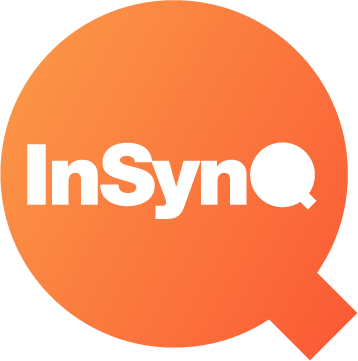
InSynQ (Intervention Synthesis Questions)
checklist and guide for developing and reporting the questions addressed in systematic reviews of interventions
About the InSynQ checklist
The InSynQ checklist and guide was developed to help review authors plan and report their synthesis questions in systematic reviews of interventions.
InSynQ provides a practical tool for implementing guidance in the Cochrane Handbook of Systematic Reviews for Interventions (in particular Chapter 3 and Chapter 9). It is intended for use when developing a protocol and reporting the results of a review.
InSynQ was designed for use by:
Authors of systematic reviews
Commissioners of reviews who want to ensure that the planned synthesis aligns with their requirements
Editors and peer reviewers
Methodologists working with author teams to plan their synthesis
The most recent versions of InSynQ and the 2-page reporting template are here
What do we mean by the PICO for each synthesis?
In systematic reviews, the questions and criteria for including studies are defined by the review PICO (Populations, Interventions, Comparators and Outcomes).
The PICO for each synthesis is similar, defining the question and studies eligible for each synthesis (commonly a meta-analysis).
The figure below shows why planning and reporting the PICO for each synthesis is important. Without changing the review eligibility criteria, the synthesis can be structured to address different questions (e.g. broad as per panel A or narrower as per panel B) simply by grouping the interventions, outcomes or populations differently (see Figure). Reporting the PICO for each synthesis ensures that the synthesis questions and structure are clear.
Who developed InSynQ?
InSynQ was written by Sue Brennan, Joanne McKenzie, Miranda Cumpston and Rebecca Ryan (“the authors”).
The project was part-funded by a grant from Cochrane and done in collaboration with Ella Flemyng (advisor from the Cochrane Evidence Production and Methods Directorate) and James Thomas (advisor with methodological expertise, EPPI-Centre, UCL Social Research Institute, University College London).
We thank the many contributors from Cochrane and beyond, whose feedback through an online survey, consultation meetings and webinars informed the content of InSynQ: including Andrew Back, Soumyadeep Bhaumik, Mhairi Campbell, Lee Yee Chong, Jane Dennis, Jodie Doyle, Kerry Dwan, Ella Flemyng, Alix Hall, Ruaraidh Hill, Lee Hooper, Alexander Jarde, Renea Johnston, Kayleigh Kew, Theresa Moore, Luis Rafael Moscote-Salazar, Ani Movsisyan, Zachary Munn, Ivan Pérez-Neri, Anke Rohwer, Elizabeth Royle, Natalie Strobel, Anneliese Synnot, Pratibha Mary Thomas, Jacqueline Thompson, Jo Weldon and Melina Willson.
We welcome your feedback on InSynQ
Email us using the form below or at insynq.cochrane@monash.edu
We welcome:
General comments
Examples that might help others apply InSynQ across a range of reviews
Expressions of interest about piloting InSynQ (we have a structured survey to collect feedback)

